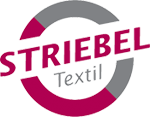Well dressed with second hand goods
Textile recycling makes it possible. You don't have to spend a lot of money to be well dressed. Second hand goods have long shed the image of dusty old clothing. Today, there is more high quality clothing in new condition, designer clothing and retro items to be found in used clothing collections than ever before. In this way, brand-name clothing at bargain prices has become affordable for large segments of the population.
Second hand clothing from Germany is in demand worldwide
70 percent of the world's population rely on used clothing. Textiles stemming from textile recycling in Germany are in demand worldwide. Reusing used clothing has many positive effects in both the source and recipient countries. People are supplied with high-grade clothing, people looking for jobs find work opportunities in textile recycling, and both the environment and resources are conserved.
Textile recycling reduces waste volume
Textile recycling helps reduce waste volume. According to a study carried out by the German Federal Association for Secondary Raw Materials and Waster Management (bvse), 1.01 million tonnes of clothing and household textiles were collected and processed in 2015: 54 % (546,000 t) as used clothing, 21 % (212,000 t) as cleaning cloths, 17 % (172,000 t) in the garnetted stock industry and 6 % (60,000 t) as substitute fuel. Only 2 % (60,000 t) found its way into the garbage.
Collecting used clothing has great significance for citizens
A representative costumer survey on handling used clothing, which was carried out by the bvse in 2013, proves that collecting used clothes has a high significance among the population. For 99 percent of the population clothing is not garbage. 86 percent of Germans donate to used clothing collections and 94 percent of the population only donate wearable items. 85 percent of those surveyed want their clothing to continue to be worn.
The re-use of used clothing saves water
The growing textile industry has led to shortages of drinking water resources. The production of cotton requires high water consumption. According to calculations from the Federal Statistical Office, the water requirement for one tonne of raw cotton is 3,600 m<sup>3</sup>, even 8,500 m<sup>3</sup> for the cotton fiber produced from it. The re-use of used clothing saves resources, compared to the production of new clothing.
Unrestrained consumption damages the environment
Unrestrained clothing consumption and increased production of textiles damages the environment. According to Greenpeace, 320 million people in China do not have access to clean drinking water. Cancer-causing, hormonally active chemicals and chemicals that are toxic for water organisms used in textile production can now be found everywhere, even in the livers of polar bears or in breast milk.
Wearable used clothing is a valuable resource
Wearable used clothing is a valuable resource. It does not belong in the garbage. It would be incinerated there. It can be made good use of and worn by other people. That's why reliable clothing collections from certified textile recycling companies in Germany can be used with a good conscience. These operations are inspected regularly by independent experts.
Re-using T-shirts cuts down C0<sup>2</sup>.
Three kilograms of C0<sup>2</sup> can be saved by reusing and recycling just one T-shirt. This was verified by a study performed in Great Britain. It is absolutely sensible to use items of clothing produced with high resource usage for as long as possible. Cotton is often grown in monocultures where lots of pesticides are used.
The recycling economy concept is implemented
Textile recycling companies in Germany contribute to conserving resources. They successfully implement the recycling economy concept of avoiding and recycling waste before eliminating it. The largest portion of used clothing and textiles either continues to be worn, is used as cleaning cloths, in insulation production or is integrated in other products as recycled fiber.
Support for charitable collecting organizations
There are a number of ecclesiastic organizations and charitable associations in Germany that collect used clothing. Textile recycling as such and companies, like Striebel Textil, that re-use used clothing, support the work of these collecting organizations. The charitable collecting organizations can finance their own work with proceeds from the collections and contribute to the greater good through their donations for social causes.



